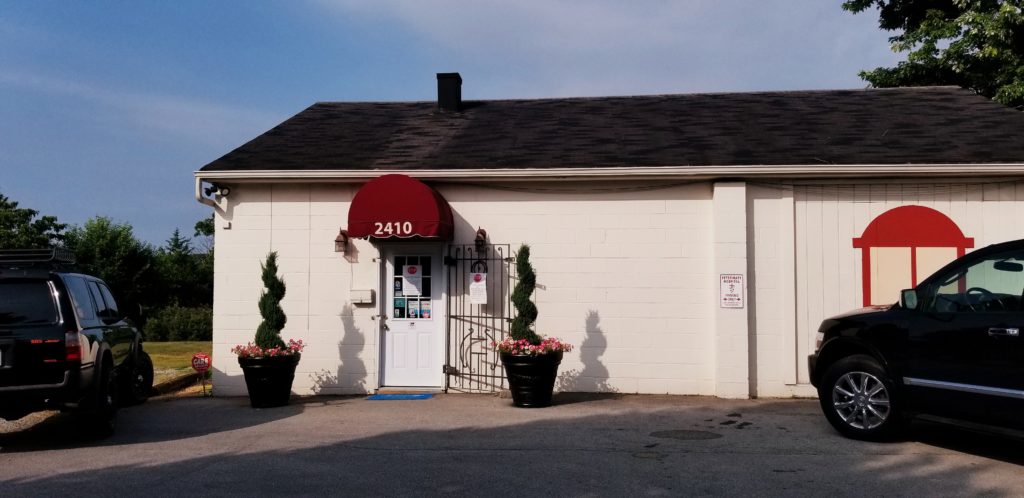Our veterinarian at Countryside Animal Hospital loves senior pets. Dr. Rainey’s personal pets all experience long active lives despite aging and inevitable disease processes. The average senior pet requires a more in depth health examination, as well as different treatment procedures based on the individual patients specific conditions. Our veterinary hospital is proud to offer advanced medical technology and protocols, as well as incorporating herbs and acupuncture that will significantly increase the quality of life of any aging pet. Any senior pet visiting our hospital should expect to receive a stress-free examination, as well a consultation with owners on lifestyle and dietary decisions deemed appropriate for their animal.
Just like humans, when animals age the type of care that they need changes too. You will need to be aware of health and mobility problems that come with age, changes in diet and even changes in their behavior and temperament.
We have put together to this short guide to help you prepare for looking after your pet as they enter their senior years.
Caring for senior dogs
When your dog is considered ‘senior’ will largely depend on what breed he is, although many people refer to dogs aged 7 and above as ‘middle aged’. However as a general rule, larger breed dogs age quicker.
Decreased mobility and lack of interest in exercise are pretty good indicators that your dog is reaching his senior years. You should reduce the amount of exercise you are providing, and you may find it beneficial to do shorter and more frequent exercise sessions rather than lengthy walks that may be too much for your pet. Ideally you should aim for 2 or 3 20-30 minute walks each day, but if your pet seems very stiff or uncomfortable then let him rest instead. Decreased mobility can also be a sign of arthritis which is common in older dogs. Your veterinarian will be able to diagnose this and offer treatment if required.
As your dog slows down, you may find that he puts on a little weight. This is because he is using less energy and isn’t burning fat the way he used to. This usually requires an adjustment of your pets’ diet. Your veterinarian will probably recommend a senior diet, which is comprised of fewer calories – your dog won’t need as much if he isn’t moving about as much – and will help prevent weight gain. Dietary changes need to be introduced gradually and carefully managed, and your veterinarian will be able to advise you of the best way to do this.
Unless you get your pet weighed regularly it can be difficult to tell if he is the correct weight for his size and breed. However, there are a couple of visible checks you can do which can highlight if weight could be an issue.
If you can’t feel an hourglass waist when you view your dog from above, or if you can’t feel his ribs with just light finger pressure then it may be that your pet needs to have his calorie intake cut. You may also find that your dog is developing a pot belly. This is also a sign of weight gain. Weight loss is just as dangerous in animals and can indicate a serious illness. If you are at all worried about the weight of your pet you should consult your veterinarian immediately.
Also just like us, dogs can suffer with eyesight and hearing deterioration as they age. This can be extremely frightening for them and often result in one of two behaviors – they can either become extremely clingy to their owner, or they may exhibit aggressive behavior. Both of these are rooted in fear and confusion and things that never used to bother then – such as bangs or children – may suddenly seem very scary and is critical that owners provide as much love, reassurance and understanding as possible.
Other problems that your dog may exhibit are:
- Incontinence
- Dental problems and periodontal disease
- Symptoms similar to Alzheimer’s Disease
- Difficulty battling illness
You will still need to ensure that your dog is up to date with his vaccinations and take him for his regular veterinary checkups. Some of the symptoms of aging can be frightening, but thanks to medical advances there are drugs available that help to combat them so that your dog will be able to continue a happy, comfortable life.
Caring for senior cats
Much of the advice for caring for senior cats is the same as caring for senior dogs. They too are considered ‘middle aged’ by the time they reach their 7th birthday and may display signs of decreased mobility and an unwillingness to participate in activities that exert them. If you have had a primarily outdoor cat, you may find that as she ages she may prefer to spend her time indoors instead.
Cats can vary in size depending on their breed, so while you need to keep an eye on her weight it may not tell you the whole story. However the same tell-tale signs listed above for dogs can indicate that it may be time to speak to your veterinarian about her weight. Again, your veterinarian may suggest a senior diet that is lower in calories and will advise of the best way to gradually introduce this to your pet.
Cats too can suffer with eyesight and hearing deterioration which can make them extremely nervous, and they may display this emotion as clinginess or aggression. You should try and reassure them as much as possible by providing them with attention and understanding.
Put a litter tray indoors, even if your cat usually does her business outside. This may prevent accidents occurring, particularly if her mobility is impaired. You should also keep a close eye on her claws as reduced activity can lead to them growing long and sometimes back into the foot.
Other problems that your cat may exhibit are:
- Incontinence
- Dental problems
- Symptoms similar to Alzheimer’s Disease
- Difficulty battling illness
You will still need to ensure that your cat is up to date with her vaccinations and take her for her regular veterinary checkups. Some of the symptoms of aging can be frightening, but thanks to medical advances there are drugs available that help to combat them so that your cat will be able to continue a happy, comfortable life.







